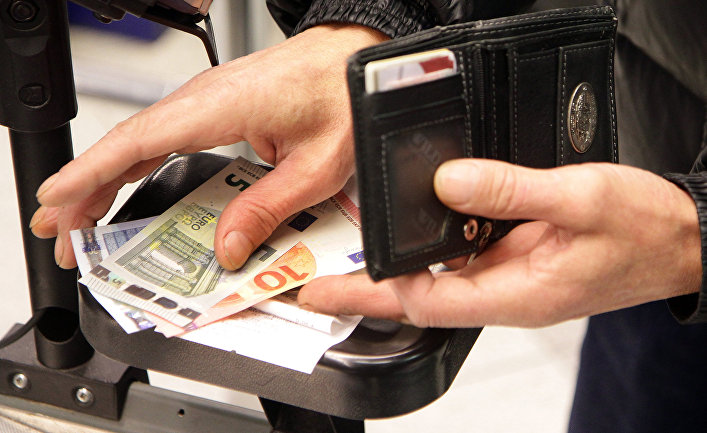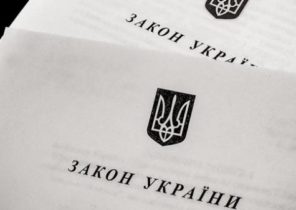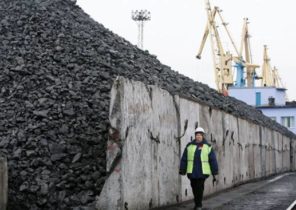
In Brussels, celebrating the anniversary of the Maastricht Treaty. Thus have been there are thinking about a new European Union, on how to achieve this goal as quickly as possible. It speaks of the complete collapse of the initial project.
When 25 years ago the Maastricht Treaty marked the emergence of the European Union and laid the Foundation for the single currency, the world still felt the optimism associated with the fall of the Berlin wall. The year before, the American political scientist Francis Fukuyama (Francis Fukuyama) wrote in his famous essay on the “end of history”: a model of free market and open society was everywhere to win, and Washington will serve as the main colossus.
Before the protests in Seattle and Genoa was far away, many were optimistic about the future of globalization.
Illusion Fukuyama crashed on 11 September 2001, when it was blown up the twin Towers. However, the real fatal blow was struck in 2008 with the collapse of Lehman Brothers and the beginning of the mortgage crisis that resulted in the debt crisis that rocked the foundations of the Euro. Today, the wave of Euro-skepticism subsided in all political systems in Europe and in many countries, including Italy, the Euro became a symbol of the economic decline of the petty and middle bourgeoisie, which with the growing rage looks at the ruling class, the accused that it is in breach of 7 February 1992, as it seemed, to the Europeans who opened the door to a more secure and rich future. If the flames of nationalism again caught fire, fueled it, and the behavior of governments that continued to think, based on the national point of view, the first demonstrating his lack of faith in a United Europe.
The gradual end of sovereignty
The aim of the founding fathers of European integration, for example, Jacques Delors (Jacques Delors), was a gradual abandonment of national sovereignty that would lead to the formation of a single political entity. France and Germany under the management of françois Mitterrand (Francois Mitterrand) and Helmut Kohl (Helmut Kohl) was, however, immediately yield to the resistance of countries such as the Netherlands and Britain, who feared that European defence would deprive of meaning the very existence of NATO. This prospect was unacceptable to London, which was not going to give up their independence in foreign policy and the privileged relations with the United States. Thus, cooperation in a result focused on the economy, regardless of how the creators of the Euro, for example Tommaso Padoa-Schioppa (Tommaso Padoa-Schioppa), warned about the risks of “currency without a state”. More economically weak member States of the European Union, for example, Spain, it seemed, was more depleted by the structural funds, it is the amendment of the budget, which they would have had to spend in the end of the era of debt costs. The Commission under the direction of Jacques Santer (Jacques Santer) will come to a compromise in the agreement on the famous “three pillar”: economic, diplomatic cooperation and intergovernmental cooperation on issues of domestic policy. The point about the failure of the UK who choose not to participate in the project the introduction of the Euro, was not enough to prevent Brakcet 24 years later.
The stability Pact destroys the state
With the end of talks in the Dutch city of Maastricht on 7 February 1992 between 12 countries that were at that time in the European community, signed the agreement on the European Union. Ceases to exist the European economic community, appears in the light of the European Union. And, most importantly, there is economic and monetary Union. The document, later called the Pact of stability and growth, establishes design criteria that must comply with future supporters of the single currency. These options will subsequently be called “Maastricht criteria”: the ratio between deficit and GDP not exceeding 3%, the ratio between public debt and GDP not exceeding 60% (with concessions in respect of Belgium and Italy, which already showed a higher level of debt), the level of inflation not higher than 1.5%, than the most prosperous countries. 1 June 1998 the European Central Bank took the place of the European monetary organization on the eve of the development of the Euro on 1 January 1999 and its release into circulation three years later.
The destruction of borders and security
The Maastricht Treaty says European citizenship for all individuals possessing the nationality of a state that is part of the agreement. The right of settlement, movement and existence within the EU is strengthened. Free trade is added the free movement of people. The main innovation is the right of active and passive electorate in the municipal elections in the districts of residence (in whichever EU country he was) and in elections to the European Parliament in the country of residence; the right to consular protection, which means that a European citizen may require assistance abroad by the diplomatic authorities of any EU country in the absence of representative organisations of his country; the right to present a petition to the European Parliament on municipal issues that directly affect the interests of the citizen and intermediary institution of the European Union, whose task is to care for the physical and legal entities in case of bad work of the organizations of the European Union. The benefits of a European citizen is minimal, and after the abolition of borders, he faces an immigration crisis and emergency situation with terrorism.
Double acceleration to the Europe of the future?
Recently, Angela Merkel spoke about the possibility of accelerated development of the EU in response to the continuous disintegration of Europe and the Euro. According to the Chancellor of Germany, this concept should appear also in the Declaration on the 60th anniversary of the Treaty of Rome, which will be celebrated in Italy at the end of March this year. “The history of the last years have shown that Europe will grow faster, and the members of the Union will not always be at the same level of integration”, — said Merkel, stressing that the meeting in Valletta was held thus “in the spirit of togetherness”. The Chancellor, of course, is not the only politician who proposed Malta summit accelerated development of Europe. Major debates occur mainly in the light of future British exit from the European Union.






